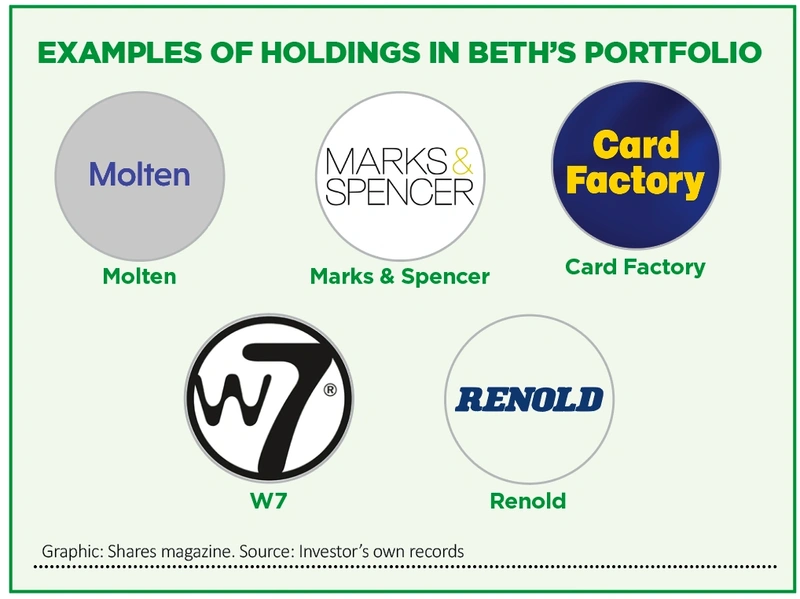Archived article
Please note that tax, investment, pension and ISA rules can change and the information and any views contained in this article may now be inaccurate.
From stage and screen to stocks and shares – Beth shares how she has started her investment journey
Twentysomething Beth started her investment journey during the pandemic after chatting with her dad who is an experienced investor. Prior to that investing was ‘never on her radar’.
Beth’s parents opened a Stocks & Shares ISA for her with investment platform AJ Bell and this is how she primarily invests. She also has a Lifetime ISA – a tax free savings product available to the under-40s which can be used to save for your first home and retirement.
Beth hopes her ISA will ‘compound’ over the long term by using her active investment strategy.
WHERE DID IT ALL START?
Beth used her free time during the pandemic in 2020 and 2021 to learn about investing in the stock market, particularly those areas of interest to her. This largely includes UK-listed stocks across the range of market valuations.
‘One of my biggest investment wins was in investing in Marks & Spencer (MKS) over a year ago when its turnaround story was becoming more compelling,’ she explains.
She readily admits that the last three years have been volatile for her portfolio due to uncertain market conditions.
When planning her ISA, she restricts herself to 20 holdings at a time. Interestingly she prefers to buy individual shares over funds. ‘‘I prefer buying stocks as I feel I can understand them better whereas funds contain many individual holdings,’ she says.
WHAT DOES BETH INVEST IN?
Beth doesn’t believe in investing in cryptocurrencies and is currently ignoring the noise about this now.
‘I prefer to invest in solid asset-backed companies over crypto and at the moment I’m happy with my levels of risk. I also want to keep a sensible amount of cash in savings [as a buffer],’ says Beth.
Beth has a focus on UK high street retailers, cosmetics, and fast fashion. ‘My biggest regret was not selling Boohoo (BOO:AIM) sooner after doubling my return on investment.
‘I didn’t notice that Boohoo’s growth was slowing, and it was losing market share to Chinese low-cost fashion retailer Shein.’
To broaden her knowledge about stocks and shares she reads the business pages of national newspapers like the Times and the Telegraph and watches online webinars about investing. Beth doesn’t read any publications focused on ‘tipping’ any particular stocks.
She also follows a few individuals on social media. These include Richard Crow a self-described 24-year-old ‘pro-investor trader’ on X (formerly Twitter) called ‘Cockney Rebel’ who largely discusses retail stocks.
MAKING PLANS FOR THE FUTURE
Beth believes it is important for people her age to start investing now thus giving them a long investment horizon of 30 years or more.
‘I’m passionate about investing, it is empowering and not enough people my age invest maybe due to lack of cash or just don’t know enough,’ says Beth.
She adds that people shouldn’t ‘underestimate the power of time in the market and compound growth’.
As Beth has recently bought a property in southwest London with the help of deposit money from her parents, she will be focusing on home improvements in the near term.
‘However, I really enjoy investing using my ISA and I am hoping to grow my savings over time, perhaps buy a car with cash and achieve financial freedom in years to come.’
LIFETIME ISA IN A NUTSHELL
To open an account, you must be 18 or over but under 40, and you can pay in up to £4,000 per year as part of your £20,000 annual ISA limit until you are 50.
The government will add a 25% bonus to your savings, up to a maximum of £1,000 per year.
In theory, therefore, if you pay in £4,000 every year from age 18 to age 50 you could get a ‘free’ £32,000 from the government on top of your original savings of £128,000.
Once you turn 50, you can’t pay into your Lifetime ISA or earn the 25% government bonus but your account stays open and earns interest or investment returns. You can hold cash, shares, or a mixture of them, and you get all the usual ISA benefits such as no tax on income and capital gains but there are strict rules on withdrawals.
You can only withdraw money if you are:
Buying your first home;
Aged 60 or over;
Terminally ill with less than 12 months to live.
If you withdraw cash or assets for any other reason, you must pay a 25% charge based on your total pot.
DISCLAIMER: Please note, we do not provide financial advice in case study articles, and we are unable to comment on the suitability of the subject’s investments. Individuals who are unsure about the suitability of investments should consult a suitably qualified financial adviser. Past performance is not a guide to future performance and some investments need to be held for the long term. Tax treatment depends on your individual circumstances and rules may change. ISA and pension rules apply. AJ Bell referenced in this article owns Shares magazine. The author (Sabuhi Gard) and editor (Tom Sieber) of this article own shares in AJ Bell.
Important information:
These articles are provided by Shares magazine which is published by AJ Bell Media, a part of AJ Bell. Shares is not written by AJ Bell.
Shares is provided for your general information and use and is not a personal recommendation to invest. It is not intended to be relied upon by you in making or not making any investment decisions. The investments referred to in these articles will not be suitable for all investors. If in doubt please seek appropriate independent financial advice.
Investors acting on the information in these articles do so at their own risk and AJ Bell Media and its staff do not accept liability for losses suffered by investors as a result of their investment decisions.
Issue contents
Case study
Feature
- As BRICS grouping grows find out which of the original members has done best
- Emerging markets: positive 2024 outlook for stocks and earnings as voters go to the polls
- Why falling interest rates could be a ‘harbinger of boom’ for commercial property
- Enjoy the retirement you want: How to build a SIPP portfolio
Great Ideas
Investment Trusts
News
- How Advanced Micro Devices has surfed AI wave
- Birkenstock under pressure after disappointing post-IPO earnings
- US stocks hit new high buoyed by biggest jump in consumer confidence in 33 years
- Finsbury Growth & Income marks three years of underperformance
- Under the radar tech star Super Micro Computer surges as earnings set to smash forecasts
- UK core dividend payments rose 5.4% to £88.5 billion last year

 magazine
magazine









